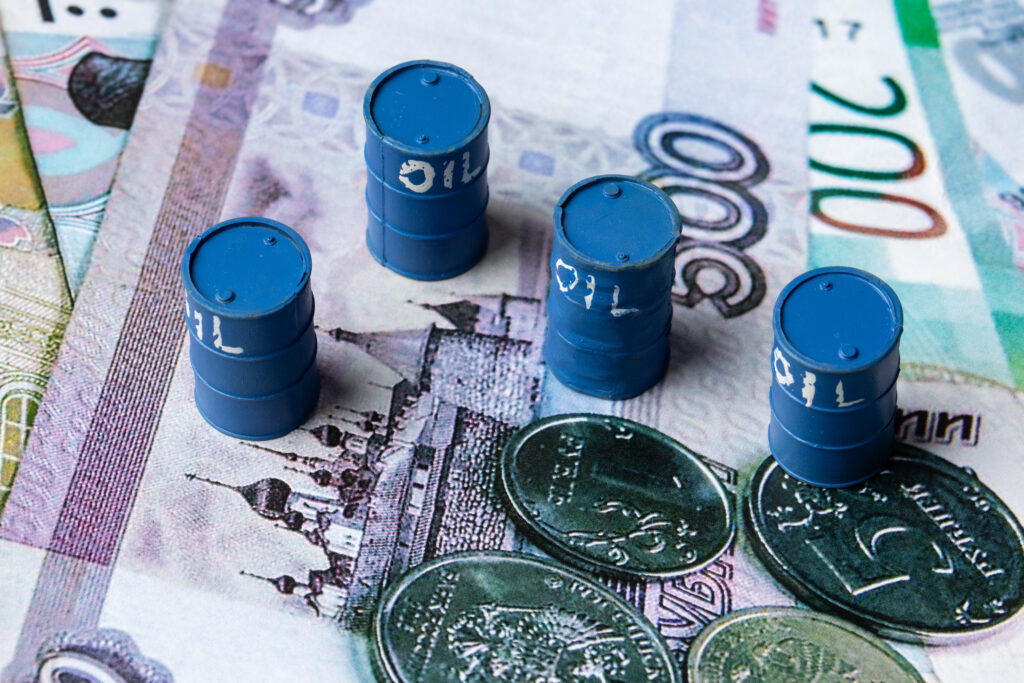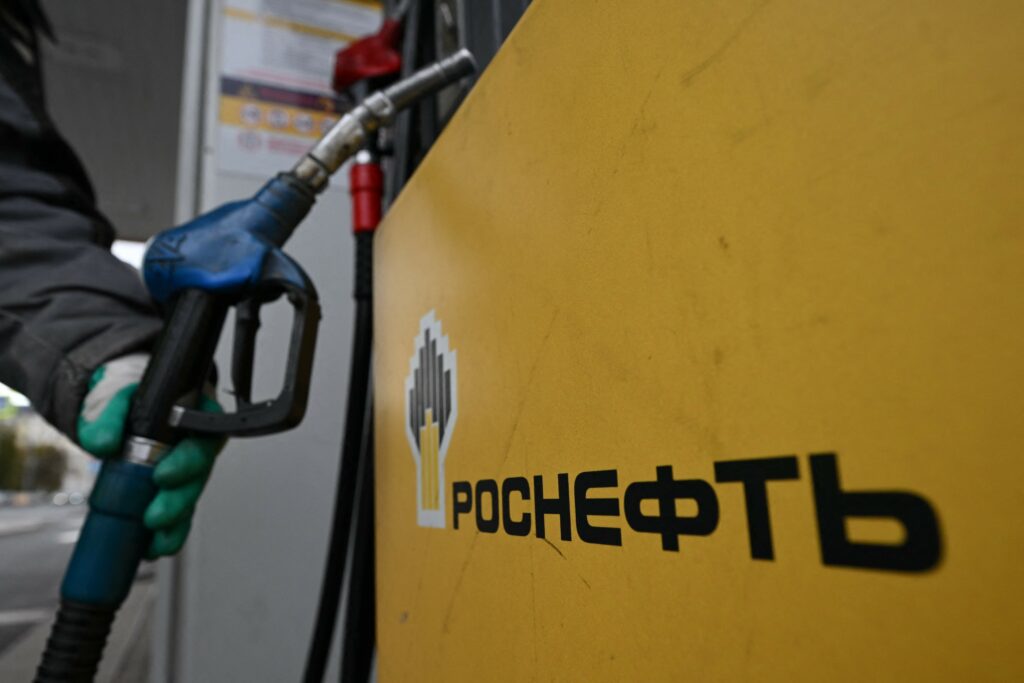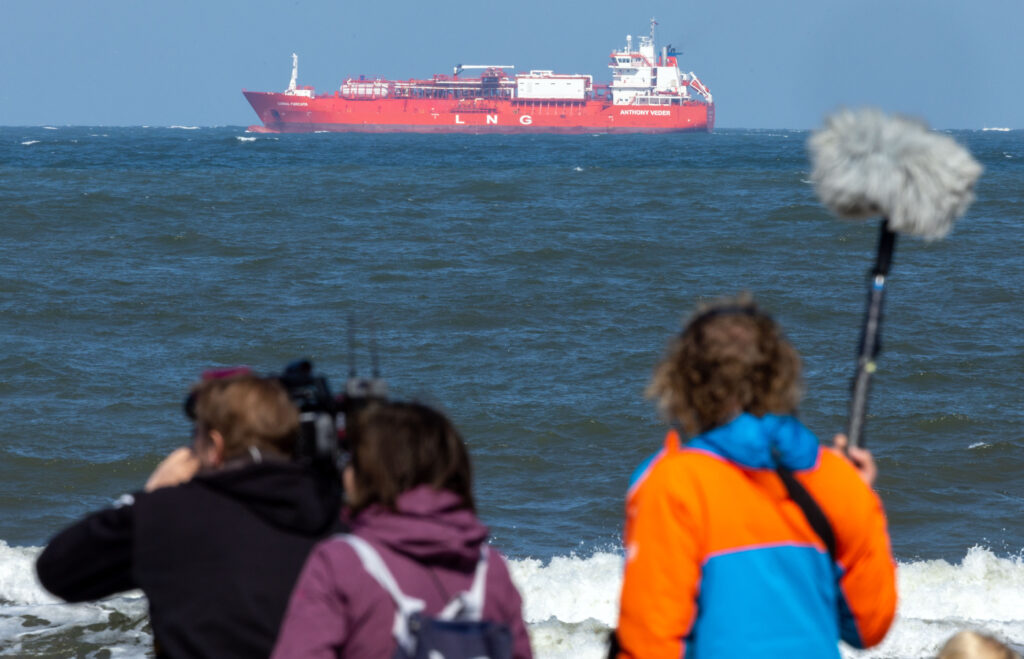Many Western sanctions mechanisms, introduced after Russia’s full-scale invasion of Ukraine, aim to restrict the Russian economy’s access to sensitive goods and technologies. However, through parallel import schemes involving third countries, sanctioned goods continue to enter the Russian market. In response, the EU has tightened measures to counter sanctions evasion, such as introducing secondary sanctions against entities suspected of facilitating circumvention. Yet, their effectiveness remains questionable.
Meanwhile, a reverse issue is becoming increasingly evident: Russian-origin products, including sanctioned energy resources, are finding their way from Russia to the West, again through intermediary states that formally comply with sanctions. Georgia, already implicated as a channel for re-exporting sanctioned cars to Russia, is now involved in the opposite logistics—as a transit hub for Russian products entering the European market. A sharp increase in exports of «Georgian» oil and petroleum products to EU countries since the start of the full-scale war raises suspicions that Georgian entities are aiding sanctions evasion.
Context
Since the onset of the full-scale war, Western countries have imposed extensive restrictions on Russian oil and petroleum product exports. The EU banned their maritime imports from Russia and, in coalition with G7 countries, Australia, Norway, Switzerland, Albania, and others, introduced a price cap on their exports to third countries ($ 60 per barrel for crude oil, $ 100 for premium petroleum products, and $ 45 for discounted petroleum products). Transportation and insurance of Russian oil and petroleum products above these caps are prohibited not only for European companies but also for any operators using European services.
Over time, measures have only tightened. For instance, under the EU’s 15th sanctions package, 52 tankers from third countries suspected of breaching the price cap were banned from EU ports. In early 2025, the U.S. announced a broad sanctions package targeting Russia’s oil and gas sector, affecting Gazprom Neft, Surgutneftegaz, dozens of oil service companies, foreign traders, and over 180 vessels in Russia’s so-called «shadow fleet» used to evade sanctions. The upcoming 18th EU sanctions package proposes lowering the price cap to $ 45 per barrel.
Yet, Russia continues to supply significant volumes of energy resources to the global market. According to a report by the Center for Research on Energy and Clean Air (CREA), Russia’s maritime oil exports in May 2025 exceeded 23 million tons (roughly 5.5 million barrels per day), with nearly 54% transported on tankers registered in G7 countries. The shadow fleet’s share dropped from 65% in January to 46% in May, possibly indicating efforts to replace risky vessels with formally «clean» ones. Despite a decline in export revenues—down $ 1.13 billion in April compared to March, totaling $ 13.2 billion, per the International Energy Agency—Russia maintains stable supply volumes, offsetting price drops.
Against this backdrop, a new logistical configuration for transiting Russian energy resources via third countries like Georgia draws attention. A recent investigation by the Georgian team iFact reveals that Russian oil and petroleum products reach sanction-compliant countries through Georgia, where their origin is disguised. These channels represent a new level of sanctions evasion, involving states outside sanctions coalitions but providing infrastructure and legal cover.
The Georgian Trail
The investigation pointed to Georgia’s potential role as a transit hub in the supply chain of Russian energy resources. This is evidenced by a sharp rise in exports of oil and petroleum products labeled as «Georgian» to both EU countries and other jurisdictions. According to Georgia’s National Statistics Agency (Geostat), total oil and petroleum product exports from 2019−2021 were about 65,000 tons, but from 2022−2024, cumulative shipments surged over fourfold to 275,000 tons (including 104,000 tons to EU countries). Export value over the same period grew from $ 46 million to $ 255 million.
Georgia lacks significant oil reserves (annual production is about 35−40,000 tons), and domestic consumption of roughly 1.5 million tons per year is almost entirely met by imports. This suggests that most exported products are re-exports of imported, primarily Russian-origin, raw materials.
Import trends support this assumption. Georgia’s main oil and petroleum product suppliers are traditionally Russia, Bulgaria, Romania, Turkey, and Azerbaijan. However, Russian imports show anomalous growth: from 225,000 tons in 2021 to 658,000 tons in 2022, 771,000 tons in 2023, and 698,000 tons in 2024. Supplies from other countries remain relatively stable.
Part of the Russian imports is then re-exported from Georgia. According to iFact, the sanctions evasion scheme involves formally changing the country of origin: Russian oil or petroleum products are imported to Georgia, where they acquire a new «legal status» through registration with local companies, document substitution, or blending with small volumes of local raw materials. These procedures bypass sanctions, especially when end recipients do not demand transparency about the cargo’s origin. In 2024, the largest volumes of «Georgian» oil and petroleum products went to the Netherlands (61,000 tons) and Greece (14,000 tons), and from January-May 2025, to the Netherlands (20,000 tons).
Some shipments may not physically pass through Georgia: exports may be registered to Georgian companies, but the cargo ships directly from Russia. In such cases, movements are not recorded in Georgia’s foreign trade statistics or customs databases. However, in international reporting—e.g., EU imports—the oil is listed as «originating from Georgia.» These schemes significantly complicate monitoring and obscure the true sources, violating EU rules stating that «cargoes containing Russian fuel mixed with products from other countries may be subject to sanctions depending on the Russian component’s share.»
Statistical data, discrepancies in production and export volumes, and identified logistical schemes suggest that much of the Georgian oil exported to Europe is of Russian origin. In this context, Georgia acts not as a source or processor but as a hub for legalizing cargo, providing infrastructure, logistics, and legal cover to bypass sanctions barriers.
Risks
Georgia’s involvement in sanctions evasion schemes carries several serious threats.
First, the active use of Georgian infrastructure and entities to re-export Russian oil and petroleum products as «Georgian» could be seen as aiding sanctions violations, potentially triggering secondary sanctions against individual companies or entire sectors of Georgia’s economy tied to logistics, fuel distribution, and financial services. Western countries have increasingly targeted intermediaries, traders, and shadow trade participants from third countries. While many current sanctions focus on Iranian oil trade, further growth in re-exports through sanctions evasion channels could lead to restrictions on Georgian entities involved in Russian oil and petroleum product trade.
Second, Georgia risks being classified as a high-compliance-risk country for international banks, insurers, and operators. If suspicions arise about the opacity of supplies transiting through Georgia, foreign counterparties may restrict Georgian companies’ access to key financial operations, transport insurance, and payment systems. This would hinder foreign trade and limit investment inflows, not only in the oil sector but across the economy.
Third, large-scale participation in sanctioned supply logistics undermines Georgia’s already weakened trust with the European Union. Following the sharp curtailment of EU integration and the Georgian authorities’ slide into authoritarianism, involvement in sanctions evasion schemes further jeopardizes Georgia’s European prospects. Despite gaining EU candidate status in December 2023, Georgia risks stalled progress toward closer EU ties.
Fourth, Georgia faces the threat of so-called «crushing» U.S. sanctions, which impose 500% tariffs on imports from countries continuing to purchase Russian oil and petroleum products. If enacted, these sanctions would block access to the U.S. market, which accounted for $ 141 million of Georgia’s exports in 2024. As the U.S. is consistently among Georgia’s top three trading partners, this mechanism could significantly harm Georgia’s external economic position.
The Georgian Case’s Distinction
The Georgian case gains particular significance against the backdrop of established schemes where petroleum products made from Russian oil reach markets of price-cap coalition countries. Typically, these involve countries with oil refining capacities: they purchase Russian oil, process it at refineries, and export the resulting products under their own origin. Legally, these are value-added products that undergo significant industrial processing and change origin status, making such supplies formally permissible under current restrictions.
Per CREA, in 2023, countries sanctioning Russia imported petroleum products made from Russian oil worth nearly € 8.5 billion. Supplies from countries like India, China, Turkey, and the UAE grew by an average of 44% compared to 2022. India, for instance, imports about 1.8 million barrels of Russian oil daily and exports billions in petroleum products to Europe and the U.S. From India’s Vadinar refinery (Gujarat), supplied by sanctioned Rosneft, $ 135 million in petroleum products were shipped to the U.S. between January 2024 and January 2025.
Georgia’s case differs. The country lacks refining capacities, with the first refinery not planned until 2028. Thus, oil and petroleum products exported from Georgia undergo no significant technological changes and are largely re-exports of Russian energy resources. Labeling them as «originating from Georgia» can be misleading. Unlike countries with refining capacities, Georgia provides only logistical and legal cover without creating industrial value, making this scheme more vulnerable to external scrutiny and potential Western sanctions responses.
However, Georgia’s case is not unique. Similar sanctions evasion schemes, bypassing significant raw material processing, are observed in Turkey on a larger scale. According to CREA and the Center for the Study of Democracy (CSD), from February 2023 to February 2024, over 5 million tons of petroleum products worth € 3.1 billion were supplied to EU countries through Turkish ports without refining capacities (Ceyhan, Mersin, and Marmara Ereğlisi). Up to 86% of petroleum products entering these ports were of Russian origin, with much of the subsequent exports going to Greece, Spain, Italy, the Netherlands, and other EU countries. Despite no refining, the products received a new formal origin—”produced in Turkey." Unlike schemes in India or the UAE, these Turkish terminals served as transshipment bases for Russian petroleum products, involving temporary storage, minimal blending with local raw materials, and legalization without changing commodity codes.
Such cases highlight a growing trend of creating parallel logistical routes to export Russian oil to global markets, bypassing sanctions, and demonstrate the limited effectiveness of current sanctions policies.










